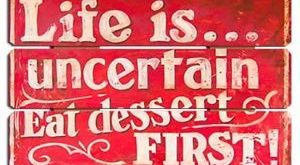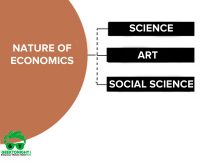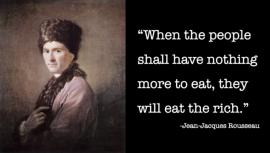Heinsberg corona study finally published Since i) a high degree of PCR testing was performed in this community by the health authorities during the outbreak of SARS-CoV-2 infection, and ii) the outbreak was largely over, this community was chosen as an ideal site to estimate the real number of infected individuals. It is important to note that the infection rate in Gangelt is not representative for other regions in Germany or other countries. However, with...
Read More »Pandemic depression antidote (IX)
Pandemic depression antidote (IX) [embedded content]
Read More »Därför borde SvT läggas ner
Därför borde SvT läggas ner Tid är en bristvara i tv. Om man likväl — som så ofta nu för tiden — använder dyrbar sändningstid till struntsaker och menlös ‘underhållning’ måste det finnas ett skäl. Televisionen är — fortfarande — för en stor del av befolkningen en av de viktigare källorna till information och världsbild. Att fylla ut programtablåerna med trivialiteter blir därför ett effektivt medel att – istället för att fungera som ett instrument för...
Read More »My ten favourite science books
My ten favourite science books • Bhaskar, Roy (1978). A realist theory of science • Cartwright, Nancy (2007). Hunting causes and using them • Freedman, David (2010). Statistical models and causal inferences • Georgescu-Roegen, Nicholas (1971). The Entropy Law and the Economic Process • Harré, Rom (1960). An introduction to the logic of the sciences • Keynes, John Maynard (1936). The General Theory • Lawson, Tony (1997). Economics and reality • Lipton,...
Read More »Keynes’ General Theory
A couple of years ago — when visiting one of Helsinki’s many nice cafés and restaurants — yours truly read the following inscription on a mirror and thought Keynes must have been here … Anyhow — slides from yours truly’s keynote presentation at the Kalevi Sorsa Foundation celebration of the 80th anniversary of Keynes’ General Theory is available here.
Read More »Så rullar historiens hjul
Så rullar historiens hjul Den som inte hoppas skall inte förtvivla. Den skall inte tvivla som ingenting tror. Men den som söker mål och den som söker mening ger draken dess etter och riddaren hans svärd. Gunnar Ekelöf [embedded content]
Read More »Vespers
[embedded content]
Read More »Is economics — really — a science?
Is economics — really — a science? As yours truly has reported repeatedly during the last couple of years, university students all over Europe are increasingly beginning to question if the kind of economics they are taught — mainstream economics — really is of any value. Some have even started to question if economics is a science. At least two Nobel laureates in economics have tried to respond. This is Robert Shiller‘s answer: Critics of “economic...
Read More »Der politische Fragebogen
Haben Sie eine Überzeugung, die sich mit den gesellschaftlichen Konventionen nicht verträgt? Ich bin für Kannibalismus. Eat the rich. Könnten Sie jemandem küssen, der aus Ihrer Sicht falsch wählt? Klar, beim Küssen hält er ja den Mund. Nennen Sie ein politischen Buch, dass man gelesen haben muss. Alle Bücher gegen Trump. Rosa von Praunheim/ Die Zeit
Read More »Pandemic depression antidote (VIII)
Pandemic depression antidote (VIII) [embedded content] In loving memory of Patrick Gibson. RIP.
Read More » Lars P. Syll
Lars P. Syll






